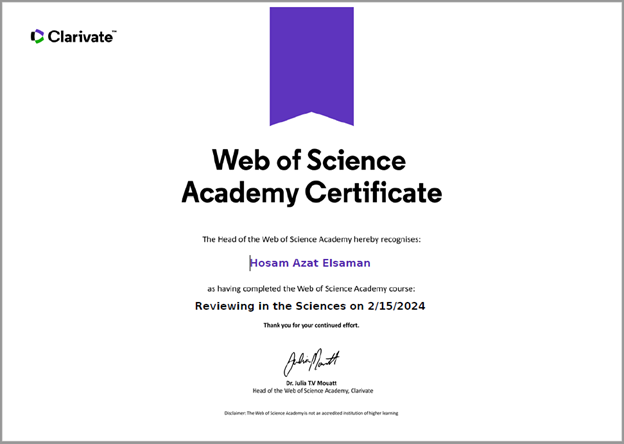The missing dimension of knowledge transfer from subsidiaries to headquarters: The case of Oil and Gas companies in CEE region
DOI:
https://doi.org/10.15549/jeecar.v3i2.140Keywords:
Top management team, Diversity, Company performance, Organization life cycle.Abstract
The paper identifies knowledge management determinants of knowledge transfer from subsidiaries to headquarters in the top Oil & Gas companies in Central and Eastern Europe as their level of innovations, internationalization and economic importance are emerging. The paper sheds a light not only on the process of knowledge transfer parent-subsidiary but via versa as it is critical in the 21st century for better adapting to specific business needs in certain geographical regions. Thus, this reversed knowledge from subsidiaries to headquarters is critical for the given business sector where the level of innovation and amount of R&D investments are enormous. The study argues that the reversed process of knowledge transfers from subsidiary to parent company is positively related to company performance and business diversification. Nowadays the knowledge formed in the subsidiaries of Multinational Corporations (MNCs) is transferred to headquarters by investing in R&D centres, building new exploration and testing sites abroad. In the reversed knowledge transfer process we can identify main challenges, which are very critical to analyse and determine the exact process.
References
Ambos, T. C., Ambos, B., & Schlegelmilch, B. B. (2006). Learning from foreign subsidiaries: An empirical investigation of headquarters' benefits from reverse knowledge transfers. International Business Review, 15(3), 294-312.
Ambos, T. C., & Ambos, B. (2009). The impact of distance on knowledge transfer effectiveness in multinational corporations. Journal of International Management, 15(1), 1-14.
Ambos, T.C., Ambos, B., Schlegelmilch, B.B., 2006. Learning from the Periphery: An
Empirical Investigation of Headquarters’ Benefits from Reverse Knowledge Transfers.
International Business Review 15 (3), 294-312
Bonache, J., & Brewster, C. (2001). Knowledge transfer and the management of expatriation. Thunderbird International Business Review, 43(1), 145-168.
Birkinshaw, J., & Hood, N. 1998. Multinational subsidiary evolution: Capability and charter change in foreign-owned subsidiary companies. Academy of Management Review, 23(4): 773-795.
Cohen, W. M., & Levinthal, D. A. (1990). Absorptive capacity: A new perspective on learning and innovation. Administrative science quarterly, 128-152.
Foss, N. J., & Pedersen, T. (2002). Transferring knowledge in MNCs: The role of sources of subsidiary knowledge and organizational context. Journal of International Management, 8(1), 49-67.
Foss, N. J., & Pedersen, T. (2004). Organizing knowledge processes in the multinational corporation: An introduction. Journal of International Business Studies, 35(5), 340-349.
Berchtold, S., Pircher, R., & Stadler, C. (2010). Global integration versus local adaptation: a case study of Austrian MNCs in Eastern Europe. European Journal of International Management, 4(5), 524-549.
Gupta, A. K., & Govindarajan, V. (2000). Knowledge flows within multinational corporations. Strategic management journal, 21(4), 473-496.
Szulanski, G. (1996). Exploring internal stickiness: Impediments to the transfer of best practice within the firm. Strategic management journal, 17(S2), 27-43.
Szulanski, G., & Jensen, R. J. (2006). Presumptive adaptation and the effectiveness of knowledge transfer. Strategic Management Journal, 27(10), 937-957.
Tsai, W. (2001). Knowledge transfer in intraorganizational networks: Effects of network position and absorptive capacity on business unit innovation and performance. Academy of management journal, 44(5), 996-1004.
Downloads
Published
How to Cite
Issue
Section
License
The JEECAR journal allows the author(s) to hold the copyright and publishing rights of their own manuscript without restrictions.
This journal applies the Creative Attribution Common License to works we publish, and allows reuse and remixing of its content, in accordance with a CC-BY 4.0 license.
Authors are free to: Share — copy and redistribute the material in any medium or format and Adapt — remix, transform, and build upon the material for any purpose, even commercially.
Under the following terms: Attribution — You must give appropriate credit, provide a link to the license, and indicate if changes were made. You may do so in any reasonable manner, but not in any way that suggests the licensor endorses you or your use.
No additional restrictions — The author may not apply legal terms or technological measures that legally restrict others from doing anything the license permits.
The JEECAR Journal is committed to the editorial principles of all aspects of publication ethics and publication malpractice as assigned by the Committee on Public Ethics.












